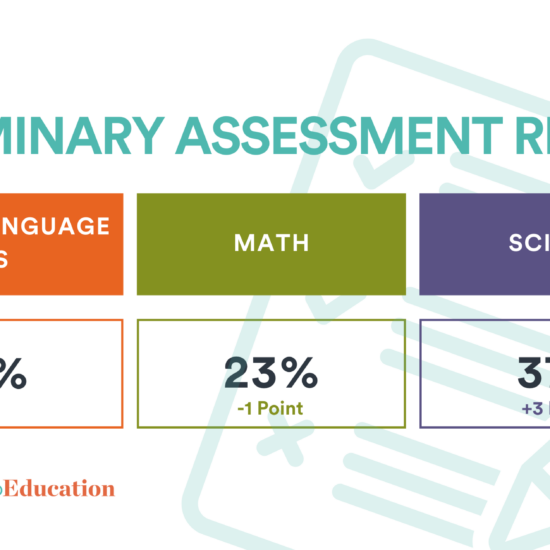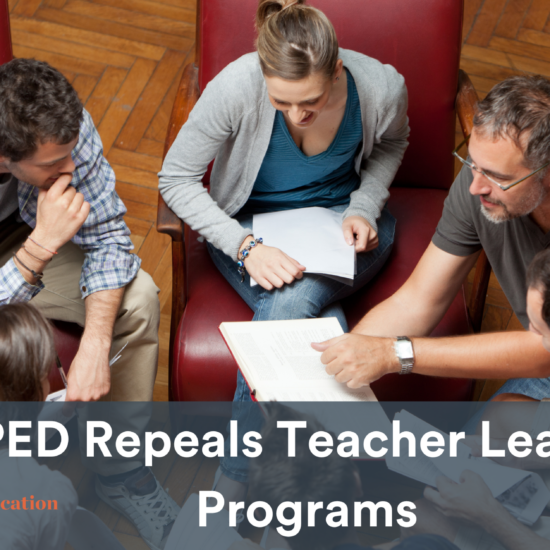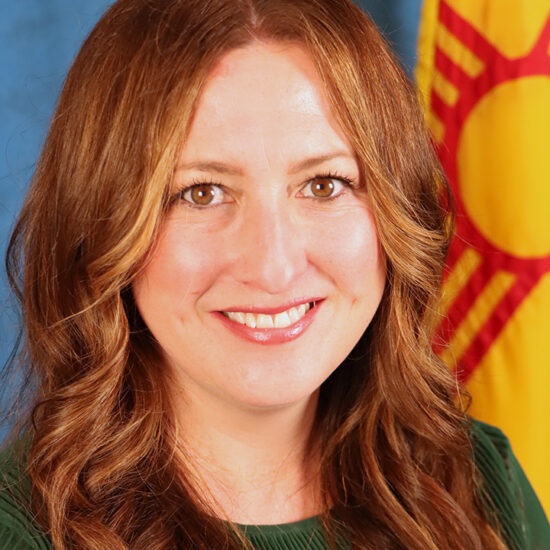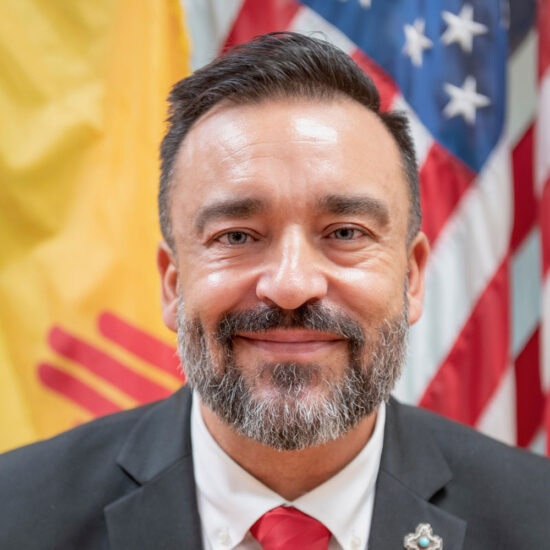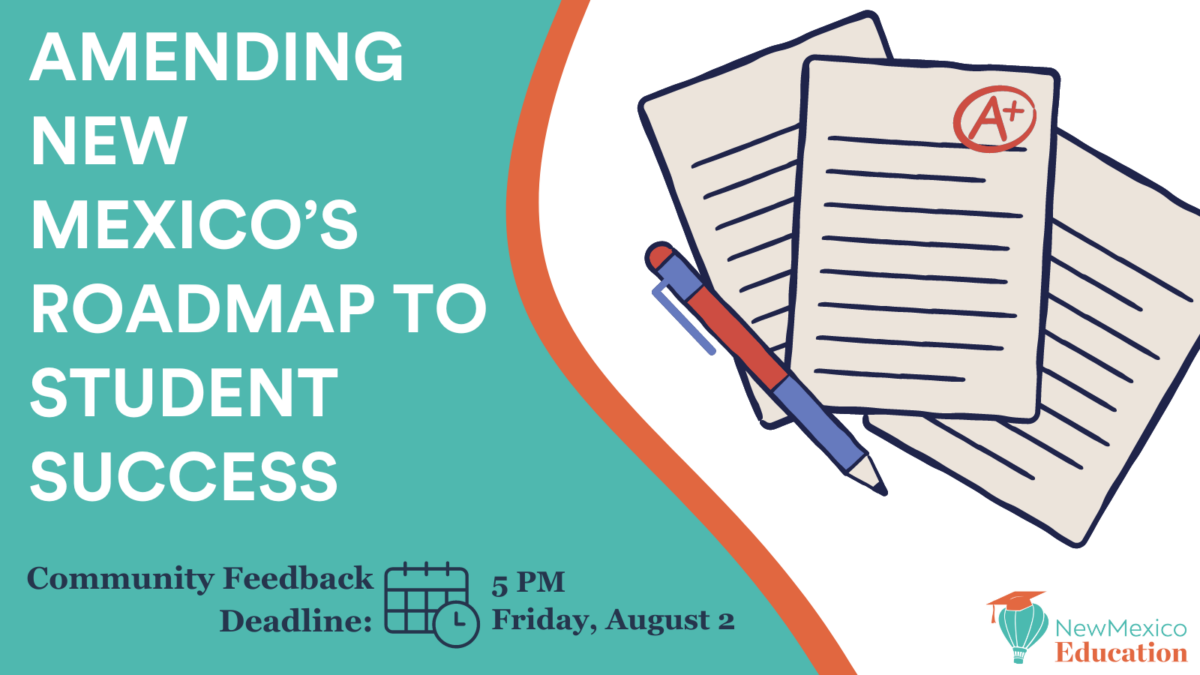
Friday marks the final day for parents, students, educators, and community members to provide feedback on the proposed amendments to New Mexico’s Every Student Succeeds Act (NM-ESSA) plan.
The New Mexico Public Education Department (NMPED) has been actively seeking input to collect input on whether the revised plan meets the educational needs of all students in the state. The deadline for submitting feedback is 5 pm Friday, August 2, 2024.
The Every Student Succeeds Act (ESSA) is a federal law that allows states the power to design education policies tailored to their unique student populations. New Mexico’s ESSA plan outlines state-specific goals, school accountability measures, strategies for student support, and other essential components aimed at improving education quality.
Why These Amendments Matter
First approved in 2017 and amended in 2020 to address COVID-19-related changes, the current ESSA plan is being revised to address ongoing educational challenges and opportunities for improvement that arose following a site visit to PED by the federal government.
The US Department of Education visit found that the state was not consistently following the approved ESSA plan, and has required PED to reissue a number of accountability factors.
In a notice on their website, PED states the revisions will be guided by the feedback from New Mexicans, ensuring that the plan aligns with the community’s educational values and needs.
The proposed amendments cover several significant areas:
- Title I – A (Assessment & Accountability): This section includes changes to school assessment and accountability processes. Proposed amendments total 62 pages.
- Title I – C (Migrant Education): This section works to improve support for migrant students. Proposed amendments total 3 pages.
- Title I – D (Neglected, Delinquent, and At-Risk): This section works to better programs for at-risk youth. Amendments total four pages.
- Title II (Teacher Training/Mentorship/Effective Instruction): This section works on strengthening teacher development and instructional strategies. Proposed amendments to this section total 10 pages.
- Title III (Multilingual Learner Programs): This section deals with programs for students learning English. Amendments are three pages of amendments.
- Title IV – A (Academic Enrichment Grants): This section deals with academic grant programs. Proposed amendments are three pages.
- Title IV – B (21st Century Community Learning Centers): This section handles after-school and summer learning initiatives. Proposed amendments are six pages.
- Title V (Rural and Low-Income School Programs): Enhanced support for rural and low-income schools. This comes out to six pages of amendments.
- Title VII (Education Supports for Students Experiencing Housing Insecurities): This section deals with aid for students facing housing instability. This section has 23 pages of proposed amendments.
In April and May of 2017, New Mexico was one of the 17 states that submitted their initial ESSA accountability plans to the U.S. Department of Education. These plans were part of a broader effort to rethink and reform education in line with state-specific goals and challenges.
Shortly after submission, Bellwether Education Partners, working with the Collaborative for Student Success, conducted an independent analysis of these state plans. The review, which involved more than 30 bipartisan state and national education experts, aimed to highlight both the strengths and areas for improvement in each plan.
The 2017 analysis praised New Mexico for its forward-thinking approach in several categories. These were used to determine the effectiveness of the plan.
Standards and Assessments: The state’s commitment to the Common Core State Standards and Next Generation Science Standards was applauded, along with the use of Partnership for Assessment of Readiness for College and Careers (PARCC) assessments. New Mexico’s plan to cover Advanced Placement exam fees for low-income students was also commended.
Indicators: In its plan, New Mexico provided a clear set of meaningful indicators for student success, including growth among the lowest-performing students, college and career readiness, extended-year graduation rates, and chronic absenteeism.
Academic Progress: According to the review, the state’s accountability system effectively balanced the importance of grade-level proficiency with student growth. This ensured that schools were recognized not only for achieving high proficiency rates but also for demonstrating progress among all students.
Supporting Schools: New Mexico’s plan was praised for its “clear” intervention strategies for schools identified as needing improvement were considered exemplary. The plan outlined specific actions to be taken if schools failed to show progress within three years.
New Mexico’s ESSA plan was praised for its innovation and commitment to equity. The plan took effect before the Yazzie-Martinez decision was made, a court ruling that called for additional efforts from the state to improve student results.
The COVID-19 pandemic disrupted schools in 2020, at the same time the state began shifting away from the PARCC test. In 2023, after a four year hiatus, PED brought back the state’s accountability system after student testing resumed in 2022 with the new NM-MSSA assessment for New Mexico’s third through eighth graders. 11th grade students take the SAT.
Your Voice Matters
PED has not made a big deal about the amendments, and while the opportunity for New Mexicans to contribute to this feedback process is closing on Friday, August 2, New Mexican insights and experiences will help shape an education plan that truly reflects the needs of New Mexico’s diverse student population.
To review the amendments and provide feedback, visit the PED’s ESSA Amendment Page. The page offers access to surveys for specific sections and a presentation on the proposed changes. Completing these surveys by 5 pm on Friday, August 2 ensures your voice is heard in this critical decision-making process.




